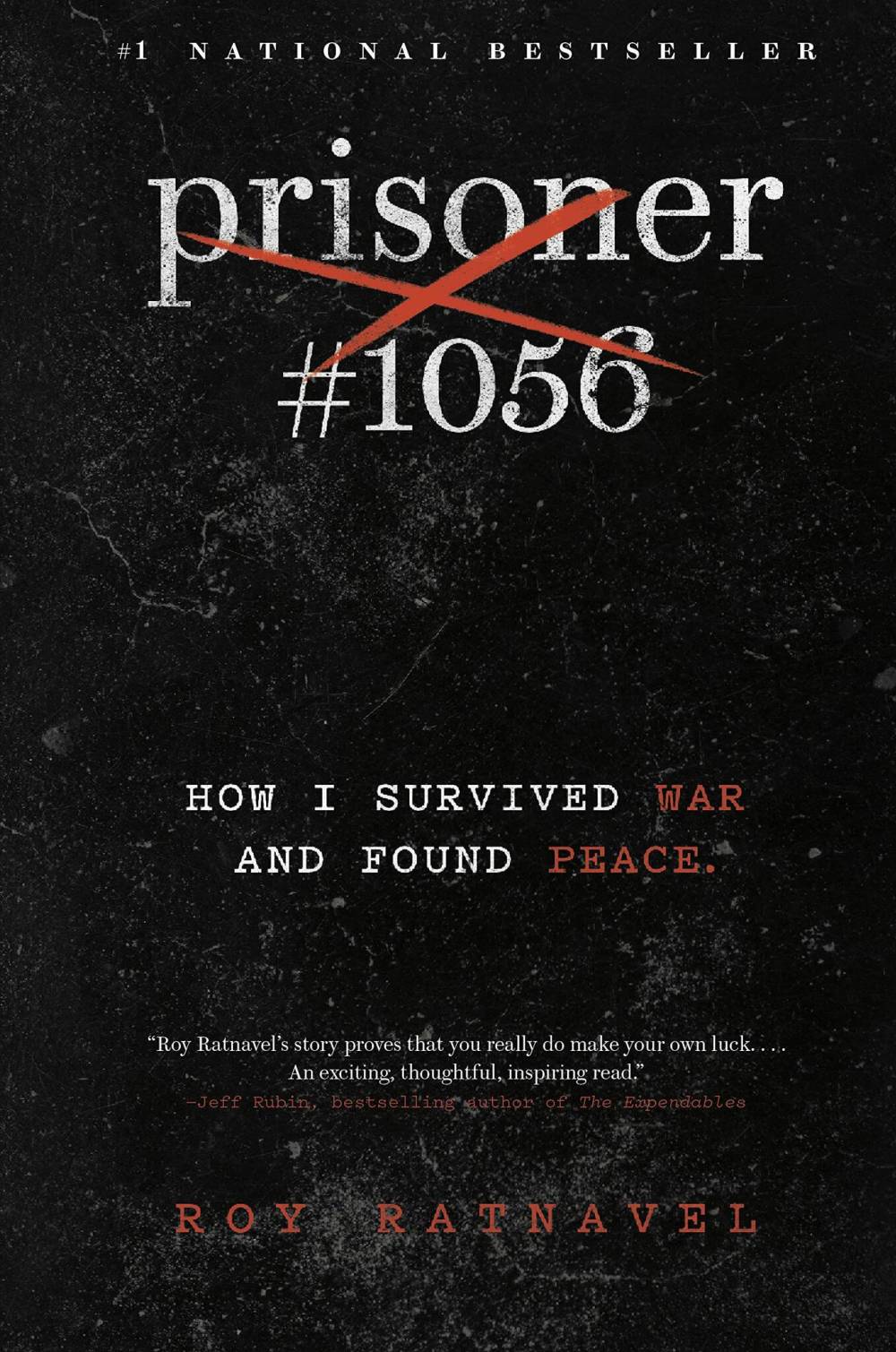
Every family’s legacy can be mixed, whether due to strained relationships, major or minor disagreements, external factors or some combination of issues. In his memoir Prisoner #1056: How I Survived War and Found Peace, Roy Ratnavel relates how his background as a Tamil man from Sri Lanka, and particularly his relationship with his father, influenced his later life and his determination to succeed in his new life.
Ratnavel grew up in Sri Lanka during a period of intense persecution of the Tamil people in that country. He became a political prisoner at the age of 17 before immigrating to Canada, where he worked at a variety of jobs before becoming an executive at CI International, Canada’s largest asset management company. Currently, he lives with his wife and son in Toronto. Prisoner #1056 is his first book.
In Prisoner #1056, Ratnavel tells the story of his early years in Sri Lanka where, as a teenager, he was rounded up together with other Tamils, taken to prison and tortured before being released three months later through the intervention of a family friend. The author’s father insisted on getting his son to Canada to give him a better life and the chance to flourish.
Prisoner #1056
Only a short section of the book deals with the author’s imprisonment, but it establishes Ratnavel’s sense of obligation to work hard and thus justify his father’s decision. When he learned his father was shot and killed only days after Ratnavel’s departure, it gave the author an added incentive to do well in his new country.
Much of the rest of the book deals with the author’s rise from a position in the mailroom of a large company to becoming one of its executives. Although Ratnavel attributes much of this success to his own hard work and perseverance, readers might see other people’s help as being equally important. Had his father not insisted on immigrating to Canada despite his son’s objections, for example, the outcome could have been very different.
Prisoner #1056 is both a tribute to the author’s father and a plea for Canadians to take the potential loss of their freedom seriously. For example, Ratnavel says freedom of speech is essential for equality, but it is also one of the most vulnerable rights. The value of hard work is another of the author’s themes, something he feels was foundational to his success.
Despite having a sense of self-satisfaction some readers might find grating, Ratnavel has written a compelling and often insightful story of how one person was able to overcome serious obstacles to achieve success in a new country. His views as a newcomer to Canada can help highlight aspects of this society Canadian-born people might not see, while his story of rising from a very low-level job to a high-ranking career can encourage people to attempt to improve their own lives.
In general, Prisoner #1056 is a well-written account of one person’s life experiences. The quality of the writing varies at times, and the scenes of torture and killing at the book’s outset might be difficult for some readers. The title is somewhat misleading since the author’s life in Sri Lanka, including his time in prison, takes up only a few dozen pages, but these sections help to set up the motivation behind the author’s determination to do well in Canada.
Susan Huebert is a Winnipeg writer and dog sitter.
If you value coverage of Manitoba’s arts scene, help us do more.
Your contribution of $10, $25 or more will allow the Free Press to deepen our reporting on theatre, dance, music and galleries while also ensuring the broadest possible audience can access our arts journalism.
BECOME AN ARTS JOURNALISM SUPPORTER
Click here to learn more about the project.


